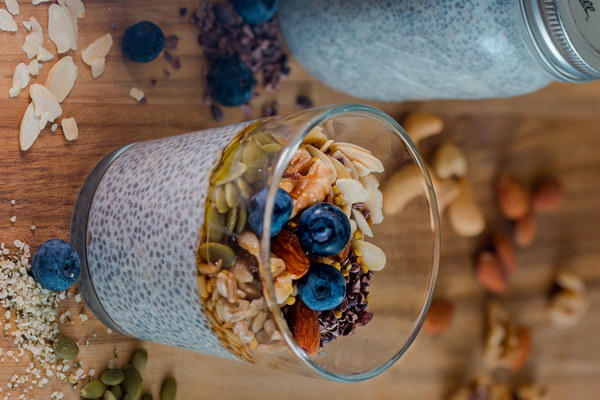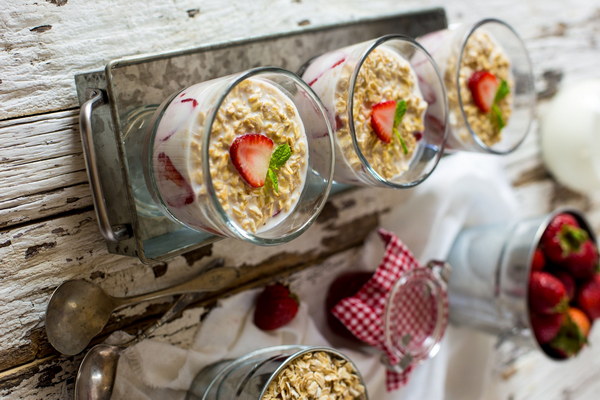Nourishing Your Pregnancy A Guide to Proper Supplementation in the Second Trimester
Pregnancy is a time of significant change and growth for both mother and baby. Ensuring adequate nutrition during this period is crucial for the healthy development of the fetus and the well-being of the mother. The second trimester, often referred to as the 'golden period' of pregnancy, is a critical time when the baby's organs are rapidly developing. This article provides a comprehensive guide on how to supplement your diet during the second trimester to support your baby's growth and your overall health.
1. Folic Acid
Folic acid is a B-vitamin that is essential for the formation of the baby's neural tube, which eventually develops into the brain and spinal cord. During the second trimester, the demand for folic acid increases, and it is recommended that pregnant women consume at least 400 micrograms daily.
Sources of Folic Acid:
- Fortified cereals
- Leafy green vegetables, such as spinach and kale
- Beans and lentils
- Citrus fruits and juices
- Fortified grains
2. Iron
Iron is vital for the production of hemoglobin, the protein that carries oxygen in the blood. During pregnancy, the body needs more iron to support the increased blood volume and the growing fetus. A deficiency in iron can lead to anemia, which may cause fatigue, weakness, and shortness of breath.
Sources of Iron:
- Lean red meats, such as beef and pork
- Poultry
- Fish, particularly salmon and trout
- Fortified cereals and bread
- Legumes, such as lentils and chickpeas
- Dark leafy green vegetables
3. Calcium
Calcium is essential for the development of the baby's bones and teeth. It also helps maintain the mother's bone density and supports the contraction of the uterus during labor. During the second trimester, it is recommended that pregnant women consume at least 1000 milligrams of calcium daily.
Sources of Calcium:
- Dairy products, such as milk, cheese, and yogurt
- Fortified plant-based milk alternatives
- Dark leafy green vegetables, such as kale and collard greens
- Almonds and almonds butter
- Sardines and tofu

4. Protein
Protein is the building block of life and is crucial for the growth and repair of tissues in the body. During pregnancy, the need for protein increases, and it is recommended that pregnant women consume an additional 25 grams of protein daily.
Sources of Protein:
- Lean meats, such as chicken, turkey, and lean beef
- Fish, such as salmon and tilapia
- Eggs
- Dairy products, such as milk and yogurt
- Legumes, such as lentils, chickpeas, and black beans
- Nuts and seeds
5. Omega-3 Fatty Acids
Omega-3 fatty acids, particularly DHA, are important for the development of the baby's brain and eyes. During the second trimester, it is recommended that pregnant women consume at least 200 milligrams of DHA daily.
Sources of Omega-3 Fatty Acids:
- Fatty fish, such as salmon, trout, and mackerel
- Flaxseeds and flaxseed oil
- Chia seeds
- Walnuts
- Eggs enriched with omega-3 fatty acids
6. Vitamin D
Vitamin D is essential for the absorption of calcium and phosphorus, which are crucial for bone health. During pregnancy, vitamin D also plays a role in the baby's development. It is recommended that pregnant women consume at least 600 international units (IU) of vitamin D daily.
Sources of Vitamin D:
- Sunlight exposure
- Fortified dairy products, such as milk and yogurt
- Fortified cereals
- Eggs
7. Vitamin C
Vitamin C is an antioxidant that helps protect cells from damage and supports the immune system. It also aids in the absorption of iron. During pregnancy, it is recommended that pregnant women consume at least 70 to 90 milligrams of vitamin C daily.
Sources of Vitamin C:
- Citrus fruits, such as oranges and grapefruits
- Berries
- Kiwi
- Leafy green vegetables, such as spinach and kale
- Red peppers
In conclusion, proper supplementation during the second trimester of pregnancy is essential for the healthy development of the fetus and the well-being of the mother. By focusing on a balanced diet that includes a variety of nutrient-rich foods, pregnant women can ensure they meet their increased nutritional needs. However, it is always best to consult with a healthcare provider before starting any new supplement regimen to ensure it is safe and appropriate for you and your baby.









